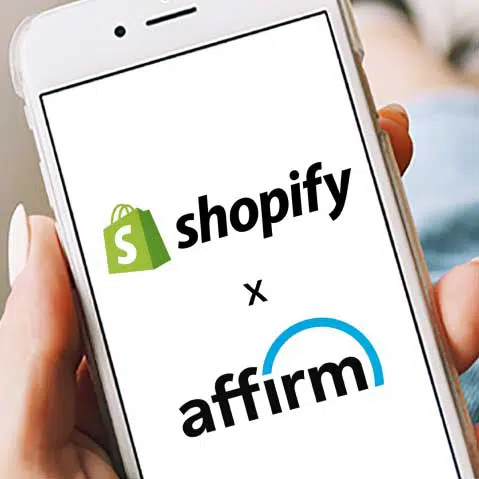Affirm Holdings Inc. on Monday described an arc that traced deals to process for tens of thousands of Shopify Inc. merchants on the upside and returns for $2,500 Peloton Inc. treadmills on the downside.
In a conference call with stock analysts to discuss its fiscal third-quarter results, the San Francisco-based buy now, pay later specialist said its deal with Shopify, announced in July, has so far recruited 12,500 merchants for Shop Pay Installments. The service is part of the Ottawa, Ontario-based commerce platform’s Shop app, which includes the Shop Pay digital wallet. Shopify accounts for 8.6% of U.S. e-commerce sales, second only to Amazon and ahead of Walmart and eBay, according to eMarketer.
Nearly all the Shopify merchants that have come onboard so far have done so within the last 30 days, said Affirm chief executive Max Levchin, following a test with about 100 sellers that participated in a pilot. “We have spent the last year testing the product, making sure it’s faster than the competition,” he said.
Now, Levchin told the analysts, there should be a fast rollout. “There’s lots more to add to this 12,500,” he said, who said Shop Pay Installments had shown itself to be 30% faster than BNPL alternatives. “This only makes sense if it’s a pervasive solution across the Shopify merchant base,” Levchin added.
The Peloton news was less sanguine. The big maker of exercise equipment, an Affirm client, last week recalled all its treadmills following news of a child’s death and scores of injuries. Levchin quantified the “impact” on Affirm at $3.5 million in returns the company must process, though he added this comes to a smaller number than “ordinary quarterly returns.”

Coincidentally, in May, Affirmed closed on its $300-million acquisition of Returnly Technologies Inc., a specialist in merchandise-returns management that allows customers to receive a replacement before returning the original item. The deal brings to Affirmed technology that serves 1,800 merchants and 8 million consumers.
“Up until that acquisition, we could handle returns,” Levchin said Monday, “but what if we knew the customer well enough to let her shop before the return was processed? Before they put the item back in the box, they can return to shopping.” Unlike traditional layaway plans, BNPL options allow consumers to receive merchandise and then pay for it over three or four installments, though Affirm’s terms usually are three, six, or 12 months.
A product Levchin is also betting on for growth is the Affirm Card, a piece of plastic that incorporates the company’s installment-payment feature for both in-store and online commerce. Affirm launched the card in February, and on Monday Levchin announced it has a waiting list. “It’s important for us to offer omnichannel transacting,” he said. “If it’s in your wallet it will remind you you can use Affirm wherever you go.”
Levchin expressed optimism for Affirmed as the economy recovers from the impact of Covid-19. “Consumers have considerable spending momentum coming out of the pandemic,” he noted. “We expect that will support our continuing growth. You’ll need a new suit before returning to work.”
For the quarter, Affirmed logged $2.26 billion in gross merchandise volume, up 83% year-over-year, but with much of the growth coming in the Christmas quarter. Active consumers came to 5.36 million, a 60% increase from the same period last year. The average active consumer performed 2.3 transactions during the quarter. Revenue totaled $231 million, up 67%.



